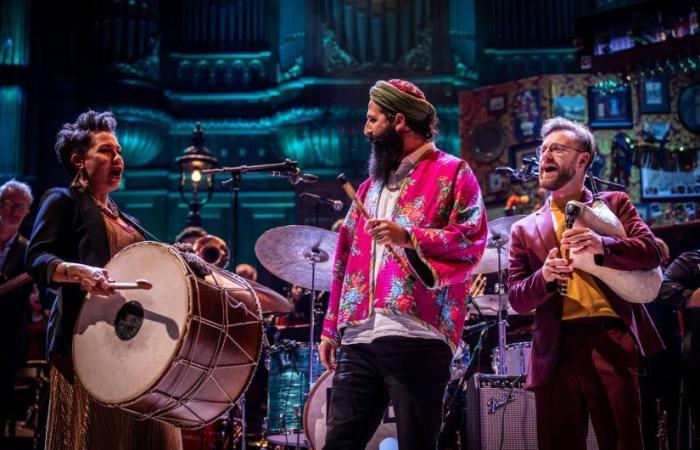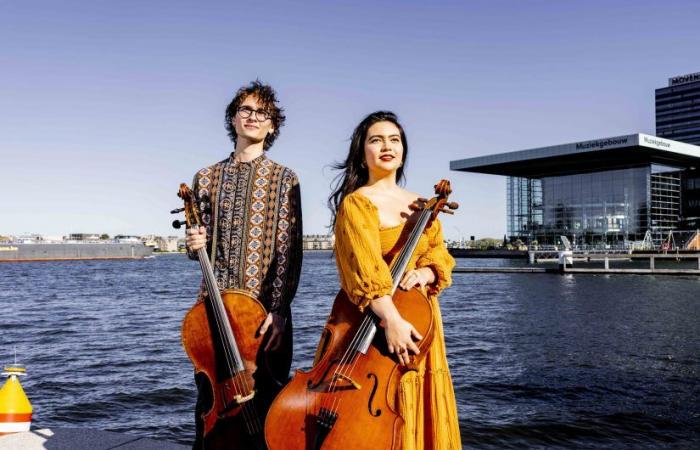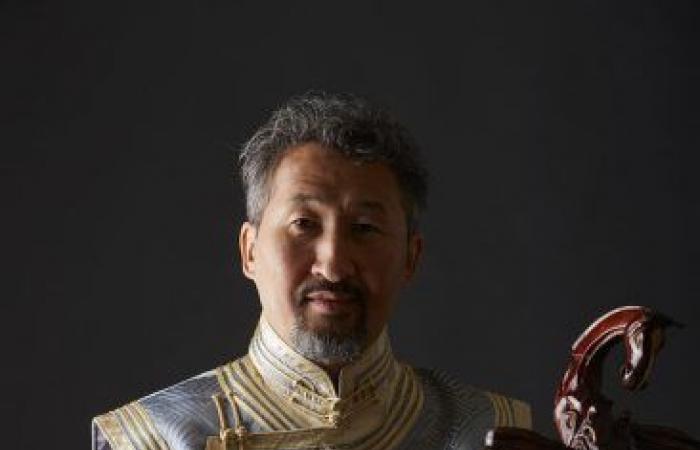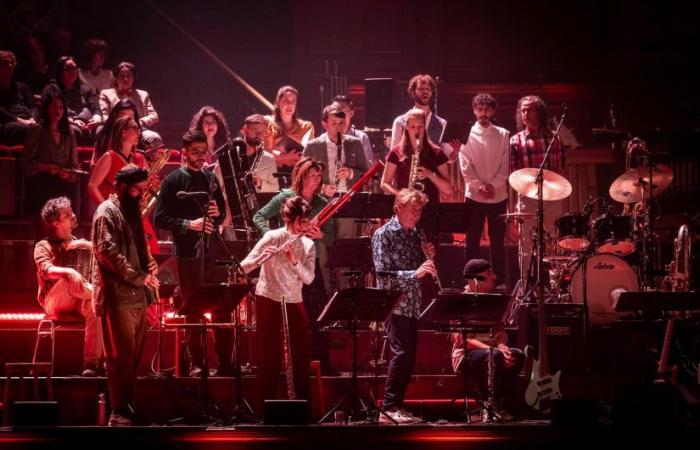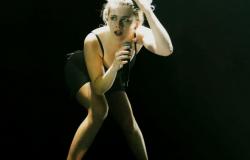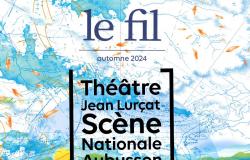The Troubadours concert, which lit up the Cello Biennale in Amsterdam on November 2, 2024, was a vibrant tribute to the richness of cultural exchange. Carried by Nesrine, Chieko Donker Duyvis, Enkhjargal Dandarvaanchigand the Netherlands Wind Ensemblethis evening transcended musical and geographical boundaries to offer a powerful message: the unifying power Music facing the fractures of our time.
We were back in this stunning glass building, inaugurated in 2005, offering a calming view of the Ij, the river that runs through Amsterdam. As we entered the main hall of Muziekgebouw aan 't IJ, our eyes were drawn to the red baroque sofa, taking center stage, while delicate lights created an intimate atmosphere, setting the tone for the evening to come.
This surprising ensemble has woven threads between varied musical styles and influences from the four corners of the world: from traditional Mongolian singing to Caroline Shaw, from Orlando di Lasso to Florian Magnus Maier.
Caroline Shaw, born in 1982, is an American composer, violinist and singer. She was the youngest winner of the Pulitzer Prize for Music in 2013 for her composition Partita for 8 Voices. Shaw is a member of the vocal ensemble Roomful of Teethknown for his innovative creations. Her style mixes classical, folk and contemporary influences, and she collaborates with various artists, cementing her reputation in the contemporary music scene.
Florian Magnus Maier, is a German composer and guitarist born in 1973 in Munich, active in contemporary classical music and various styles of metal. Maier is recognized for his work Shadow playa concerto for two guitars, and has received several awards, including the Paul Jacobs Memorial Award, the Matthijs Vermeulen Prize and the Composition Prize of the Codarts Conservatory of Rotterdam.
The ensemble also performed pieces composed by the three soloists: Nesrine, Chieko Donker Duyvis and Enkhjargal Dandarvaanchig.
Nesrinewith a captivating voice and enveloping charisma, captivated the audience. Alternating between the acoustic cello and the electric cello, which she humorously calls “her husband” and “her lover,” she has demonstrated exceptional versatility. His songs in French and Arabic resonated like bridges between cultures, coloring the room with poetry and passion. The song Spells suspended time, while Dounia invited the audience to join in, turning the audience into a united chorus.

Chieko Donker Duyviswho appears on the festival poster swinging happily on one of the swings at the entrance to the Muziekgebouw, provided an introspective contrast to the performance. His compositions brought a moment of gentleness and reflection, although his style, resembling a musical comedy, resonated less with me.
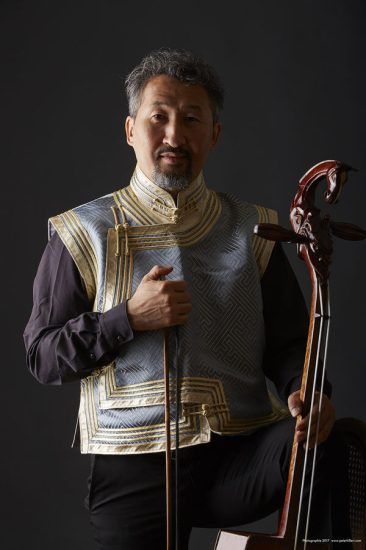

The provision ofEnkhjargal Dandarvaanchig (Epi)master of the morin khuur and Mongolian throat singing, brought a mystical dimension to the evening. Blessed with an impressive five-octave vocal range, he played with depths and heights, controlling every nuance with hypnotic precision. His guttural and airy singing, anchored in the traditions of the steppe, evoked the raw power of nature and the human soul in search of freedom.
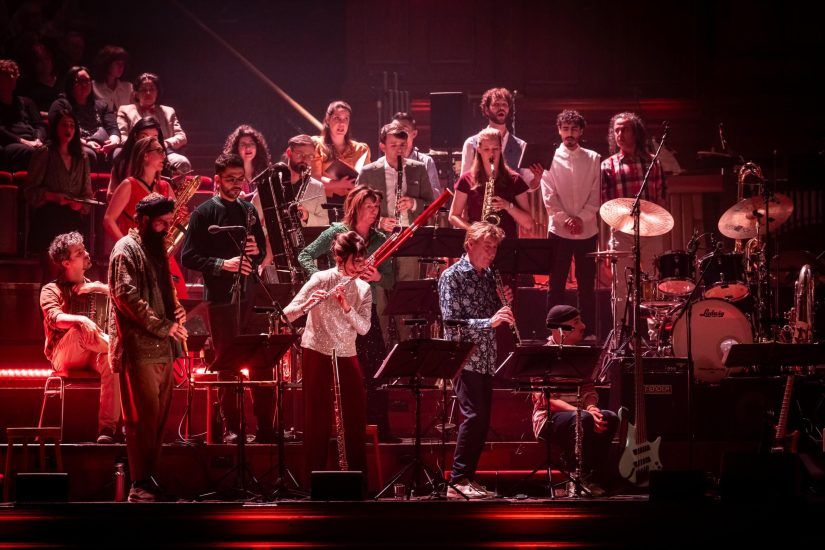

The Netherlands Wind Ensemble knew how to gracefully weave together all of these voices and instruments, adding unusual touches of percussion – like vases used as instruments by the versatile Malika Maminova – and joyful improvisations that made the audience want to leave their seats and start dancing.
At a time of great geopolitical tensions and social fractures, Troubadours was more than a concert: an ode to mutual enrichment and hope. Through their creativity and diversity, these artists reminded us that in the face of global challenges, the real response lies in unity and openness to others.
Interpreters
Nesrine : cello and vocals
Chieko Donker Duyvis : cello and vocals
Enkhjargal Dandarvaanchig (Epi) : morin khuur and singing
Netherlands Wind Ensemble
Flute
Jeannette Landre
Ney
Sinan Arat
Oboe
Vincent van Wijk
Clarinet
Bart the Tomcat
Annemiek de Bruin
Bass
Dorian Cooke
Greta Tull
Saxophone
Johan van der Linden
English horn
Ron Schaaper
Trumpet
Bas Duister
Trombone
Team Ouwejan
Bass trombone
Brandt Attema
Double bass and bass guitar
Juliano Abramovay
Drums and percussion
Jeroen Batterink
Percussion
Malika Maminova

